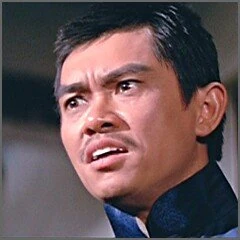Lee Weng (traditional Chinese: 李翁; simplified Chinese: 李翁) (born August 29, 1799 – died 11 October 1897) was a military general, politician, Regent and Emperor of the late Qing Dynasty in China. As Emperor, he had the title of Xuantong Emperor (Wade-Giles: Hsuan-t’ung Emperor; simplified Chinese: 宣统皇帝; traditional Chinese: 宣統皇帝; pinyin: Xuāntǒng Huángdì).
Lee was very skillful and was able to use the divisions between the pro-Ma and anti-Ma factions in the Qing court and the army to gain power, first as Viceroy of Liangjiang, the as Regent for Guangxu Emperor and finally as Xuantong Emperor. He tried to modernize China, but after his defeat in the Great Revolution and the restoration of Puyi, his reforms were abandoned.
Early Life[]

Location of Dongying in Shandong province.
Lee Weng was born in August 29, 1799 in Dongying, Shandong. Lee was born in a poor family of peasants. Lee had three sisters and four brothers, all older than him. Lee's father died when Lee was just 9 years old. Lee's mother could not pay for all of her children, so Lee was given to his uncle in 1811, at the age of 12.
Lee's uncle, Fu Xiang, was a low ranking official in the local government. Fu and his wife took care of Lee, as if he was their own child. Lee learnt Kung Fu from his uncle and he would be an able Kung Fu master for the rest of his life. Lee joined the local police in 1819, at the age of 20.
Police officer[]

Lee in the 1835, as Chief of Police.
In the police, Lee investigated several cases and thanks to his skills and the arresting of many criminals, he was promoted to Chief of Police in Shandong in 1835, at the age of 36. Lee's first mission as Chief of Police was to hunt down Fang Yu, a leader of an army of 7,000 bandits that terrorized Shandong. Fang Yu had control of several hills all over Shandong, which he made his bases of operations. No one dared to take action against Fang Yu, as he either bribed or killed the Chiefs of Police and all attempts to take over his hills had failed.
But Lee refused to be bribed, so Fang decided to send a group of five thugs to kill him. In 5 March 1835, the thugs attacked him in the night, as he was returning to his home. Lee, thanks to his Kung Fu skills, managed to kill all of them. After this assassination attempt, Lee decided to take action to finish off Fang once and for all.
Lee managed to persuade the local military officers to reinforce him with 2,000 soldiers and 5 cannons. Along with 700 policemen, Lee had in total 2,700 men to use against Fang. Lee besieged Fang's main hill in Rizhao, where Fang had fortified along with 5,000 men. Lee managed to use his cannon to a great effect, forcing Fang to surrender.
This success was followed and by other successes, as Lee cleared Shandong from bandits. in 1842, at the age of 43, Lee passed the metropolitan examinations and became military commander of all Qing forces in Shandong.
Marriage[]

Ling Po, wife of Lee.
In 1840, at the age of 41, Lee married Ling Po, the 19 years old daughter of a rich trader. Lee and Ling had fallen in love with each other, as Lee viewed Ling as a very beautiful and well educated woman, while Ling viewed Lee as a man of charisma.
However, later their marriage would be disrupted by Ling's affair with Ma Xinyi from 1861 to 1864. Ling viewed Ma as a great warrior and was fascinated by him. Lee would not have affairs with other women and would stay loyal to Ling, until he learnt about her affair with Ma in 1864 and divorced her.
Military Commander of Shandong[]

Lee as military commander of Shandong.
Lee had to face in 1845 a new threat. A Bandit Army, headed by three blood brothers, Ma Xinyi, Chang Wen Hsiang and Huang Chan, and based in a hill near Heze, raided and looted all of Shandong, causing huge problems to Lee. After calls from the Chief of Police, Lee moved with his 5,000 soldiers and 12 cannons to besiege Ma. But Ma managed to defend his hill, despite his inferior numbers, showing his organizational skills and his military genius. Lee was forced to pay Ma and his men a huge wage every month, to stop the from looting.
In December 1850, Hong Xiuquan, who announced that he had received visions in which he learned that he was the younger brother of Jesus, started a peasant rebellion and managed to take over almost the whole of Southern China by 1853. During the first phases of the Taiping Rebellion, Lee remained in Shandong, which he defended from two Taiping attacks in 1853, before the main Qing army pushed the rebels back. In 1858, his army became part of the Green Standard Army and Lee was placed under the command of Ma Xinyi, who had become a Qing military commander.
War against the Taiping[]
Lee fought from 1858 to 1864 against the Taiping with great bravery and with distinction. Lee was under the command of Ma and followed the great general in all of his campaigns against the Taiping. Lee also was responsible for the defense of Shanghai.
Battle of Shu City[]
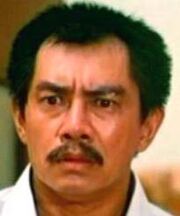
Ma during the Taiping Rebellion.
Lee, under the command of Ma, fought in the Battle of Shu City (3 March 1859). Ma managed to defeat 5,000 Taiping Rebels with just 800 men. The enemy had many cannons and the Taiping Rebels were equiped with rifles, while Ma's army only had bows and arrows. Ma send 200 volunteers to charge against the enemy with their swords, in order to act as human shields and protect the archers from the enemy's firepower. Although the majority of the 200 men, who charged, died, Ma' archers were able to get close enough to the enemy to fire their arrows, which decimated the Taiping rebels. Ma then ordered his 100 men strong cavalry to outflank the enemy army and destroy it.
Ma's cavalry was commanded by Lee. He, with great bravery, led the charge against the enemy. He led the cavalry around the Taiping rebels and charged into the back of the enemy center. Lee himself killed several Taiping soldiers and his attack was a huge success. In the Battle of Shu City, Ma lost 320 men, while the enemy army lost 3,400 men. After this victory, Ma was able to take over Shu City with little resistance.
But while Lee had shown great skills, Ma promoted and gave awards for their bravery to other younger officers, ignoring and insulting Lee and placed him under the command of a 34 years old officer, Chan Le. This greatly insulted Lee, as older officers always commanded younger ones and to be under the command of a younger officer was an insult. This happened, possibly, because of Ma's rivalry with Lee, when Ma was still bandit in Shandong.
From May Offensive to Siege of Nanchang[]

The part of the Yangtze River that passes through the Hubei province.

Ling Po, Lee's wife.
From 5 May to 27 May 1861, Qing and Taiping forces fought each other in the Hubei province, in a series of battles named the 'May Offensive'. The offensive begun with the invasion of Hubei in 5 May by Taiping general Lu Zheng with 70,000 soldiers. Ma managed to defeat Lu in the First Battle of Yichang and the Battle of Xiling. But, after being reinforced, Lu begun a new offensive against Ma and his 23,000 men with 80,000 Taiping soldiers.
Ma retreated behind the Yangtze River and the Second Battle of Yichang begun in 19 May. Lu ordered three crossings during the first day of the battle, but all of them failed, costing the lives of 2,000 Qing and 13,000 Taiping soldiers. In the second day of the battle, Lu ordered even more crossings, which would kill 1,000 Qing and 10,000 Taiping soldiers.
During the battle, one of Lu's lieutenant was captured and after many hours of torture was forced to reveal the location of Lu's storehouses. Ma knew that without supplies, Lu's huge army could not continue the battle. So, in the night of 20 May, Ma ordered Huang and 200 of his best men, to cross the river in the cover of night and burn Lu's storehouses. Lee was on of those 200 men who were send to this dangerous.
Huang indeed managed to cross the river without being noticed and managed to burn Lu's storehouses. But the Taiping soldiers woke up and started to hunt down Huang and his few men. Huang managed to cross the river along with only 11 men. The other 189 men were killed. But the mission was a great success.
After the battle, while the other ten men were awarded for their bravery, Lee was not awarded. Lee decided to resign from the army in protest for his unfair treatment. Ma decided to visit Lee's house in 3 June to persuade Lee not to resign, mainly becaused he feared the reaction of Lee's men, but Lee was not in the house. Instead, Ma met Ling Po, Lee's wife. Ling was very impressed with Ma and slept with him. So, Ma started to have an affair with Lee's wife. In 5 June, Ma met with Lee and managed to persuade to stay in the army. Lee then took part in the Siege of Nanchang (5 November 1861 - 23 June 1862). Lee was injured during the Siege and so he did not take part in the Battle of Hangzhou.
Defense of Shanghai[]
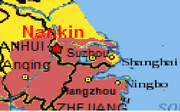
Location of Shanghai.
In 14 August 1862, 40,000 Taiping soldiers moved to besiege Shanghai. Learning the news, Ma send Lee, along with 10,000 men, to reinforce the 10,000 men that already defender Shanghai. Lee and his army came by sea and arrived in Shanghai in 17 August.
Meanwhile, the Taiping Commander Wang Yu died on his way to Shanghai and the army had to retreat back to Taiping territory, giving Lee time to organize the defense of the city. Lee build storehouses inside the city and imported several tons of food inside the city from the port. Lee also build several fortifications around the city and the road that connected Shanghai to it's port. Lee placed 15,000 of his soldiers inside the city, 4,000 to guard the road to the port and 1,000 to guard the port.
When a new commander was placed and the Taiping begun their siege in 2 September, Lee was ready. The Taiping tried to cut off the city from it's port, but they failed. They also tried to attack the city several times, but they failed. Lee and his men also broke out the city and attacked many times the Taiping, causing them huge casualties. While, after two months of besieging the city, the Taiping were starving, the Qing forces inside the city had enough food, thanks to the storehouses that Lee had build and the connection of the city to the port. Finally, in 30 November, the Taiping army retreated. Lee was victorius. The Qing had lost 3,000 men while the Taiping 11,000.
Thanks to his victory, Lee gained the suport of many soldiers and Europeans living in China. Also, Lee gained the favour of a large number of Qing officials and military commanders, who viewed Lee as an alternative to Ma's domination of the army and as a man of charisma who could end Ma's growing influence, as many of them feared Ma's growing power and influence.
Final Days of the War[]
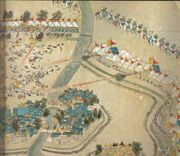
Siege of Shuzou.
Lee and his 10,000 men joined Ma in the Siege of Shuzou. Ma begun the siege of Suzhou in 3 December 1862, with 150,000 soldiers. Suzhou was defended by 75,000 Taiping Rebels. There was fierce fighting, and during one of the Taiping's attempts to break the siege, Ma was seriously wounded. Fearing Ma's growing power and influence, the Qing Government decided to deny Ma valuable reinforcements and provisions; without their support, Ma's prompt attack on Suzhou devolved into a year long siege, with both sides suffering from starvation. Desperate, Ma negotiated with his longtime rival and nemesis, General Ho, offering him half of the spoils of Nanking in return for supplies. With the new supplies, the Rebels were forced to surrender Suzhou in exchange for Ma sparing their lives (5 November 1863).
But Ma could not keep his promise. Even with the new provisions, food remained critically short, the rebels could not be conscripted or released, and the Nanjing expedition would be jeopardized. Instead, he ordered the 40,000 prisoners to be executed. The Nanjing campaign (13 - 21 January 1864) was a grand success and ended the Taiping Rebellion. Lee was promoted and given command of all forces in Jiangnan and Jiangxi, a total of 100,000 soldiers. Lee made several reforms in the army, adopting the army corps system of Napoleon. The Corps was designed to be an independent military group containing cavalry, artillery and infantry, and capable of defending against a numerically superior foe.
In jail and Buddhist monk[]

Lee in jail.

Lee as a Buddhist Monk.
Lee in early March had started to learn of his wife's affair with Ma. This angered him, and so in 5 April 1864, he divorced his wife. Ma, fearing that the scandal could endanger his career, charged Lee with false charges of corruption and in 18 April, Lee, at the age of 64, was arrested and jailed. Ma also stopped meeting with Ling.
Lee stayed in jail until Ma's death in August 22, 1870. At the age of 71, Lee was released from jail in August 31. He decided to become a Buddhist monk. For five years, Ma lived in the Shaolin Monastery. There he practised Shaolin Kung Fu and meditated. But he also masterminded his return to power. He met with several Qing officials and military commander. Many officers who had served under Lee wanted Lee back as their Commander and hoped that Lee would reward them if they helped him become Commander.
Also, they viewed Lee as a man of charisma who would be able to replace the domination of the Ma faction in the army. After the death of Ma, several of his friends dominated the army and came to be known as the 'Ma Faction'. The Qing government and many commanders who did not belong to the Ma Faction viewed Lee as one of thew few men outside the Ma faction with the charisma needed for the soldiers to accept as commander.
In 26 May 1875, Lee was called to Beijing by Empress Dowager Cixi and was made commander of all Qing forces in Jiangnan and Jiangxi as a reward for his efforts during the Taiping Rebellion. So, at the age of 75, Lee was one of the most powerful men in China.
Viceroy of Liangjiang and Regent for Guangxu Emperor[]

The Guangxu Emperor.
In 11 February 1877, Lee launched a coup against the Viceroy of Liangjiang Zeng Guofan. Lee's army managed to take over all government buildings in Jiangnan and Jiangxi and arrest Zeng. Lee send a letter to Empress Dowager Cixi, justifying his action as an attempt to stop Zeng, after he had learnt that Zeng was plannng to overthrow the Qing government. Because of the support in the army that Lee had, Empress Dowager Cixi was forced to accept this excuse and named Lee Viceroy of Liangjiang (the provinces of Jiangnan and Jiangxi) and also named him Supreme Commander of all Qing Forces.
In 14 November 1881, Empress Dowager Cixi died. Because the heir to the throne, Dowager's nephew, the Guangxu Emperor, was just 10 years old, there was a need for a Regent. Guangxu's father had died when he was 6 years old, so his mother, Yehenara Wanzhen, became Regent. But this was not accepted by Lee, who declared that in Dowager's will, it stated that he was going to become Regent for the Guangxu Emperor.
So, in 17 November, Lee marched to Beijing with an army of 120,000 soldiers and entered the city in 21 November. Lee, at the age of 81, had gained absolute power over the whole of China. Lee ruled as Regent until 1889. During this time, he tried to industrialize China, modernize the army and end the corruption in the Qing Government.
Building a political power base[]

Yehenara Wanzhen.
Lee, in order to influence the court and the army tried to make political alliances, by marriage or gifts, and appointed people that he trusted to important positions. Lee had the grandson of his brother Yu Weng, Wu Weng, who was 23 years old at that time, to marry the 33 years old Yehenara Wanzhen, mother of Guangxu, which he had spared, in 1 December 1881. He also gave a huge amount of money to Wang Dongming to take him to his side. Lee appointed as military commanders trusted persons, like Zheng Weng and Hangzing Le.
But, despite having managed to build a strong power base, Lee never managed to totally control the army and officials. Some military commanders and officials were too loved by their men or had too much influence to be dealt with. Also, many officials and commanders were against Lee's reforms, and this would lead to two revolts against his rule.
Sichuan Revolt[]

The Sichuan province.
In Sichuan, a charismatic governor named Wei Hong, opposed the reforms of Lee, so in 9 February 1886, Wei declared a revolution and rallied thousands of Farmers under his banner, calling for the restoration of the Ming Dynasty, the fall of the Manchus and the end of foreign colonialism. Wei portrayed his war as a patriotic one, a war between Hans and Manchus. Thanks to this, Wei was able to gather a huge army of 350,000 soldiers and secure control of the whole Sichuan. Lee, despite being 86 years old, decided to lead himself the campaign against the rebels. This was the first time Lee had complete command of an army in a military campaign and he would show his extraordinary military skills.
Forming an Army[]
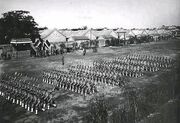
Lee's army in Xi'an.
Lee decided to gather 40,000 of his best soldiers in Xi'an, capital of the Shaanxi province that borders the Sichuan province. He could have called far more men, but he decided to sacrifice numerical superiority for speed. Lee decided to train hard for a whole month his troops to make sure that they would be ready for the campaign. His soldiers had to train at least 5 hours every day and exercised in martial arts.
Lee divided his force into 5 Army Groups. Army Group I had 10,000 men and 20 cannons and was under the command of General Chang Cheng. Army Group II had 6,000 men, all cavalrymen, and was under the command of Zheng Weng (no relation to Lee's family). Army Group III had 5,000 men, all veterans of the Taiping Rebellion, and was led by Lee himself. Army Group IV, under Hangzing Le, had 15,000 men and 10 cannons. Army Group V, under the command of Wang Dongming, had 4,000 elite troops.
The Campaign Begins[]

The offensive begins. Blue are the rebels and Red the Qing.
Lee invaded, from Hubei province, Sichuan in 1 April with Army Groups I, III and V. He also had Army Groups II and IV to wait in Shaanxi and be ready to invade. When Wei learned of Lee's movements, he decided to gather his army and meet him. So, he begun his march in 5 April with an army of 200,000 soldiers. Most of them were farmers, and this was known to Lee, who was not afraid of the numerical superiority of his enemy.
As Wei's army marched against Lee, he fortified his army in the banks of the Yangtze River. In 13 April, Zhang Weng and Hangzing Le were ordered to invade Sichuan with their Army Groups II and IV. With rapid march, Hangzing was able to capture the cities of Bazhong and Guangyuan. He fortified them and placed 5,000 soldiers and 5 cannons in Bazhong, other 5,000 soldiers and 5 cannons in Guangyuan and 5,000 men under his personal command between the cities, so he would be able to assist any of the cities, in case they were under attack. Zhang and his 6,000 strong cavalry was divided into two groups. The first, 4,000 cavalrymen, would stay between the two cities and help Hangzing and the other 2,000 cavalrymen would conduct hit and run attacks against the enemy.
Taking Chengdu[]
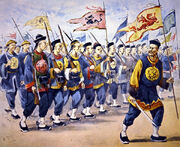
Qing soldiers.

Rebel soldiers.
Wei was forced to divide his army into two groups. The first, 100,000 strong, would retake the cities of Bazhong and Guangyuan, while the second, also 100,000 strong and led by Wei himself, would attack and destroy Lee. As the first rebel group was moving north, it was harassed by Qing cavalry. In 17 April, the Rebels reached the northern Qing forces and were divided into two groups of the 50,000 men each. The first would attack Bazhong and the second Guangyuan. Despite outnumbering their enemy by 10 to 1 in both cities, the rebels were mainly untrained farmers and lacked cannons, and so they failed to take the cities. Also, every time they managed to overwhelm the defenders of a city, Hangzing and his army, that were between the two cities, came in the defense of the city's garrison and pushed them back.
Meanwhile, in 19 April, Wei had reached the Yangtze River. Neither he nor Lee would attack. Both knew that the one who would attack would be disadvantaged. So, the two armies waited for 3 days. Wei, learning of the defeats of his army in the north and also having problems supplying such a huge army, decided to attack in 22 April. Tens of thousands of Wei's men tried to cross the river, and thousands of them were killed by Lee's well fortified troops. Wei would attack Lee's army for 5 more days, but in the end, he had to order a retreat in 27 April. Wei had lost 30,000 men. Lee only 6,000.
In 29 April, the northern rebel army retreated, having suffered 20,000 deaths, while the Qing had lost only 4,000 men. Lee ordered Army Groups II and IV in the north to move south and outflank Wei's retreating army. In 30 April, Lee crossed the Yangtze River and moved against Wei. Wei's army was outflaned by Army Groups II and IV and had to also face Army Groups I, III and V, who attacked them. So the rebels were encircled and massacred. Wei managed to escape with only 40,000 men. He then retreated in Western Sichuan, along with the remants of his Northern Army. This allowed Lee to take Chengdu, capital of the province. However, Wei, before leaving Chengdu had demolished it's walls and all fortifications.
Retreat and final victory[]

Qing soldiers training in Chengdu.

Qing soldier with rifle.
Despite his defeats, Wei was able to gather an army of 100,000 more peasants, and so, by 6 May, he had under his command of an army of 300,000 men. Wei begun a new offensive and the Qing army. During this time, Lee had allowed his troops to rest and also used the time to train 5,000 men who came to replace his losses. Lee, knowing that he could not defend the city, mainly because of the destruction of the city's walls by Wei, decided to retreat in 9 May.
As his army retreated, Lee ordered his men to burn all farms they found, after first stealing whatever they needed in order to feed the army, and massacre civilians. This led to the deaths of thousands of people and led many peasants that had not taken part in the rebellion to join the rebels. Lee knew that his massacres and buring would lead many peasants to join the rebels and that's why he did it.
As Lee's army retreated from Sichuan into Hubei, Wei had managed to gather an army of almost 380,000 soldiers and continued to hunt Lee's army. But supplies were getting low and so he had to retreat. In his retreat, Wei lost thousands of men from starvation and many more from desertions.
Lee then ordered Army Groups I, II and IV to march from Hubei to Shaanxi and then invade Sichuan from the north to outflank Wei's army, while he, leading Army Groups III and V, would hunt Wei. Wei's army was trapped and encircled in 12 June. His army had gone from 380,000 soldiers to just 100,000. His army, mainly formed from peasants, was an easy prey for the almost 40,000 best soldiers of the Qing army. Wei's army was crushed, losing more than 45,000 men to Lee's 10,000 men. Wei was captured and executed. Lee's victory had shown his military genius and also send a message to all those who thought that they could take power from him.
Writer[]

Lee's Mandarin translation of Ceasar's "Gallic Wars".
From 1886, after the end of the Sichuan Revolt, to 1888, Lee, despite his advanced age, decided to write a series of historical works. His first work was to translate to Mandarin Ceasar's "Gallic Wars", along with his own notes about the book. He then decided to write the "History of the Middle Kingdom (China)", a huge work of 29 volumes that contained all history of China, from the most early dynasties to 1886. After completing this huge work, Lee wrote the "History of the Sichuan Revolt", which was modelled after Ceasar's "Gallic Wars" and told the history of his campaign. Lee's final work was "Battles against the Taiping" which told of Lee's role in the Qing victory over the Taiping.
Xuantong Emperor[]

Lee as Xuantong Emperor.
When the Guangxu Emperor became 18 years old in 1889, he no longer needed a Regent. Lee assumed that he would still influence the young man, but Guangxu was a traditionalist and wanted to end Lee's reforms. So, Guangxu, along with several military officers and officials who were displeased with Lee's reforms, tried to coup the government and arrest Lee in 7 May 1889. But Lee was able to crush the revolt. He had the Guangxu Emperor killed and purged the military from his rivals. However, the Guangxu Emperor's young brother, Puyi, was hidden by supporters of the dead Emperor and was not found by Lee.
Lee, assuming that the young boy was dead, declared that the Guangxu Emperor and his brother had been killed by the 'traitors' and that the Guangxu Emperor had declared in his will that Lee was going to succeed him. So, in 29 August 1889, at his birthday and at the age of 90, Lee was proclaimed Xuantong Emperor (Wade-Giles: Hsuan-t’ung Emperor; simplified Chinese: 宣统皇帝; traditional Chinese: 宣統皇帝; pinyin: Xuāntǒng Huángdì). Lee had managed to become from poor peasant to Emperor of all of China.
As Xuantong Emperor, Lee continued his reforms for the next 4 years of his reign, modernizing the army and the economy and arrested many corrupted officials. He also adopted a more diplomatic approach towards the Western Powers. This, however, alienated his base of support in much of the army and made many officials hostile against him. Lee would be able to rule for 4 years as Emperor of China. Then, in 1893, his fall from power would begin.
Fall[]

The rebel army.
Lee's reforms in the army, the economy, his arrest of corrupted officials and his diplomatic approach towards the Western Powers made many officials and military commanders enemies of Lee. Also, many of the people, especially the uneducated peasants, were against Lee because of his reforms. All those factors made sure that a new revolt would begin. The only thing missing was a charismatic leader to lead the revolt. But this was soon changed, as Chan Le became leader of the traditionalist faction. Chan, 69 years old and governor of the Anhui province, was a respected man, who had fought in the Taiping Rebellion under the command of Ma. So, in 10 November 1893, Chan Le declared the young boy - brother of Guangxu Puyi Emperor of China and called the army to revolt against the usurper. Soon, the provinces of Anhui, Hubei, Hunan, Fujian, Jiangsu, Jiangxi and Guangdong were under rebel control. Chan had managed to gather an army of 600,000 men, of whom more than 200,000 were Qing soldiers and the rest peasants recruited in the army. Lee had under his command just an army of 200,000 soldiers. But, despite beng outnumbered by 3 to 1, he would go on the offensive and he would lead the campaign himself, despite being 94 years old.
On the offensive[]

The battle of Suzhou.

Rebel soldiers.
Lee divided his army into three Army Groups. Army Group I, under the command of Chang Cheng, had 100,000 soldiers and 20 cannons. Army Group II, under the command of Hangzing Le, had 50,000 soldiers and 10 cannons. Army Group III, under the personal command of Lee himself, had 50,000 soldiers and 200 cannons.
Lee ordered Army Group I, the largest of all, to invade rebel held Hubei from Henan. He also ordered Army Group II to also invade Hubei, but from Sichuan. So, 150,000 of his 200,000 soldiers would invade Hubei in a huge diversionary attack that would draw away 400,000 rebel soldiers from the real objective of Lee: Suzhou and Nanjing in the Jiangsu province.
In 13 December, the two invasion of Hubei begun. As expected, Chan send the majority of his army, 400,000 troops, to defend the province against, what he thought to be, the main enemy attack. Army Group I and II, after invading Hubei, fortified and waited for Chan's men to attack them. Army Group III then invaded the Jiangsu province in 20 December. Chan thought that Lee's attack was a diversion intended to draw his forces from Hubei, where the real attack, according to Chan, would come.
This served well Lee's plan, who moved against Suzhou with his 50,000 soldiers and 200 cannons. The city had a garrison of 60,000 soldiers who, after a three months long siege, surrendered. The siege cost 3,000 men to Lee and 7,000 to the rebels. Despite the advises of his commanders, Chan spend all this time trying to defeat the well fortified Qing positions in Hubei, which he failed to achieve.
In 15 March 1894, an army of 80,000 rebel soldiers came against Lee in Suzhou. Lee, despite having only 47,000 soldiers, decided to meet the rebels on the battlefield. The two armies met just outside of Suzhou, and so the battle of Suzhou begun. The huge numbers of cannons that Lee had decided the outcome of the battle. The rebels were defeated and had suffered 20,000 deaths. Lee only 5,000.
In 23 March, with 42,000 soldiers and his cannons, Lee besieged Nanjing. The city was defended by 50,000 soldiers. Chan tried to send a force of 100,000 soldiers to help the garrison, but Army Group I went on the offensive, pushing back the 100,000 soldiers that besieged them, and Chan was forced to recall his 100,000 to stop the advance of Army Group I. Indeed, they stopped the advance of the enemy, as Chang went on the defensive and retreated back after the rebel reinforcements had arrived. But he had managed to accomplish his goal of stopping Chan from helping the garrison of Nanjing. The city surrendered to Lee in 8 April. Chan, in order to not be encircled by the enemy, had to retreat first to the Jiangxi and then to the Fujian provinces.
From victory to defeat[]

Qing soldier.

Zheng Weng's cavalry charge.
Despite his defeats, Chan still had an army almost 400,000 strong and was able to recruit 100,000 more peasants. Lee knew this, so he united all his Army Groups and placed them under his personal command. All 160,000 men would invade Fujian. The invasion begun in 20 May. The 70,000 men defending the border of the province were defeated with ease, losing 10,000 men to Lee's 2,000 losses.
Chan decided to gather all his forces outside Fuzhou. He knew that he would not be able to feed for too long such a huge army inside a besieged city. So, he wanted to defeat Lee on the battlefield. Lee had only 140,000 men (the rest of his army was securing the area already conquered), but had 200 cannons. Those cannons could prove decisive in a battle. Chan had 420,000 men, but he had only 50 cannons. So, in 4 June, the Battle of Fuzhou begun.
Lee's plan was to use the majority of his cannons and 80,000 of his men against the enemy center. Once this was broken, the left and right wing of the enemy would be divided and so he would be able to defeat one wing after the other. Lee also placed the rest of his army (60,000 men) as a reserve force that would also protect the flanks of his army.
Chan's plan was to use his massive numbers to encircle and destroy the enemy army. The battle begun in 13:30, with a massive bombardment of Chan's 200,000 men strong center by the Qing cannons. Despite massive casualties (more than 40,000 men were either dead of wounded), the rebel center did not broke, as Lee had expected. At the same time, 100,000 rebel soldiers tried to outflank the Qing Army from the right wing, and other 100,000 rebels tried to do the same from the left wing. Lee divided his reserve force of 60,000 men to two groups of 30,000 men each, which would attempt to stop the two outflanking movements. He also ordered 80,000 soldiers to charge at the enemy center. The first to charge was his 20,000 strong cavalry, led by Zheng Weng, in one of the largest cavalry charges in history.
The charge was a disaster, as more than 12,000 cavalrymen died in this attack and the rest retreated. As they retreated, some of them fell on the Qing infantry, causing thousands of deaths. But, the Qing 60,000 strong infantry still managed to attack the rebel center. After many hours of fighting, it seemed as the enemy center was ready to collapse. But, Lee then learned that despite his men's victory in the center, the fight was lost. He had been informed that his two 30,000 men strong groups failed to hold against the two 100,000 men strong rebel groups and that his army had been outflanked by almost 200,000 men. With no reserves to throw at the enemy, Lee ordered a retreat that became a rout. More than 60,000 Qing and 100,000 Rebel soldiers died. Despite losing less men than the rebels, Lee was in a worse situation than Chan, since Chan could replace his losses and the 100,000 men he lost were just the 1/4 of his army. But Lee had lost almost half his army and could not replace his losees.
The Rebel offensive[]
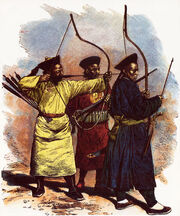
Qing archers.
After his defeat in the battle of Fuzhou, Lee gathered the remains of his army, and with his 100,000 men retreated towards the northern provinces. Chan begun an offensive in 21 June with 300,000 men. Lee, not able to face Chan's huge army, and having lost all his cannons to Chan after his defeat in Fuzhou, was forced to retreat. Chan followed him, but this extended his supply lines. Knowing this, Lee turned to face the rebel army in Anqing, in the Anhui province, in 9 August. Chan's army, now only 80,000 men strong, because of the men he had left to guard his extensive supply line, was defeated by Lee's 100,000 strong army. But Lee had lost 30,000 men to Chan's 20,000 soldiers.
Lee was not able to use his victory, but Chan was able to learn from his mistake. He fortified himself and waited for supplies and men to arrive. After the majority of his army had arrived and a new supply line had been established in Nanchang, he moved with his army against Lee and faced him in the second battle of Anqing in 21 August. Chan, making use of the 150 cannons he had captured from Lee after his victory in the battle of Fuzhou, and using his superior numbers (he had 200,000 men to Lee's 70,000) was able to defeat Lee, losing only 20,000 men to Lee's 40,000. After his defeat, Lee retreated to the Henan province and started recruiting peasants in the area, hoping to replace his losses.
Defeat[]

Siege of Kaifeng.
While Chan was regrouping his army, Lee had managed to gather an army of 80,000 men and 100 cannons and fortified himself in the city of Kaifeng. In 12 September, a 200,000 strong rebel army besieged Kaifeng. Chan was able to use with great effect with 180 cannons, but Lee's troops also fought heroically. Chan tried many times to take the city, but he failed. But, after almost 5 months of siege, starvation forced Lee's army to surrender the city in 1 February 1895.
Lee escaped the city disguised as a peasant and went to Shandong, where he managed to recruit a 40,000 strong army from peasants. Lee faced many problems with his army. Many of it's men were forced to join and did not wanted to fight. Also, Lee only had 4,000 Qing soldiers. The rest of his army was made up of untrained peasants. Lee maninly used those 4,000 men to force peasants to join the army, but still he managed to force only 40,000 from the 180,000 expected peasants to join the army. Lee also had no cannons. But still he believed that he would defeat the rebels. Lee himself was very ill and had huge problems commanding his force, something that is of no surprise, since Lee was 95 years old.
Chan invaded the Shandong province in 5 March and met Lee's forces in Jinan in 10 March. Chan had an army of 180,000 men, with most of them being battle hardened veterans of many battles. He also had 100 cannons. Lee's army was crushed and Lee himself was arrested. Chan restored Puyi to the throne and became Puyi's regent. As Regent, he would abandon Lee's reforms.
Exile and death[]

Location of Hong Kong.
After his defeat, Lee's life was spared, but he was exiled to Hong Kong. Hong Kong at that time was a British colony, and Chan made a deal with Great Britain to allow Lee to live in Hong Kong, but also to have a small British force of 10 men to guard him and make sure that he would make no attempt to escape. The British, who wanted to increase their influence in China, accepted Chan's offer. Lee's final years were not very good, as he was very ill. In 11 October 1897, at the age of 98, Lee died, exiled and defeated.
Legacy[]

Lee as a young man.
Lee had managed to go from son of a poor peasant to Emperor of all of China. He started as a police officer, became military commander of Shandong and then was placed under the orders of Ma Xinyi. Lee was able to gain much fame and love from the army thanks to his bravery and his success in the siege of Shanghai, as well because he united all those who were against Ma.
As Regent and Emperor, he tried to modernize China. He knew that if China did not modernized, the Empire was doomed to collapse, something that happened after his fall from power, when the traditionalists stopped his reforms. His military campaign against the rebels in Sichuan showed that Lee had great military skills. However, his failure to defeat the rebels in the battle of Fuzhou during the Great Revolution costed him the throne.
After his defeat in the Great Revolution and the restoration of Puyi, Lee was viewed as a usurper and an evil man. However, after Mao had managed to win the civil war in 1949, the image of Lee changed to that of an enlightened ruler who tried to modernize China.
Quotes[]
"The one who laughs last, laughs best." - Lee, after becoming Emperor.
"Burn all, kill all." - Lee's orders for his retreat during the Sichuan Revolt.
"Ma gave me the means to fight and his enemies the power to rule." - Lee to a friend after becoming Regent.
